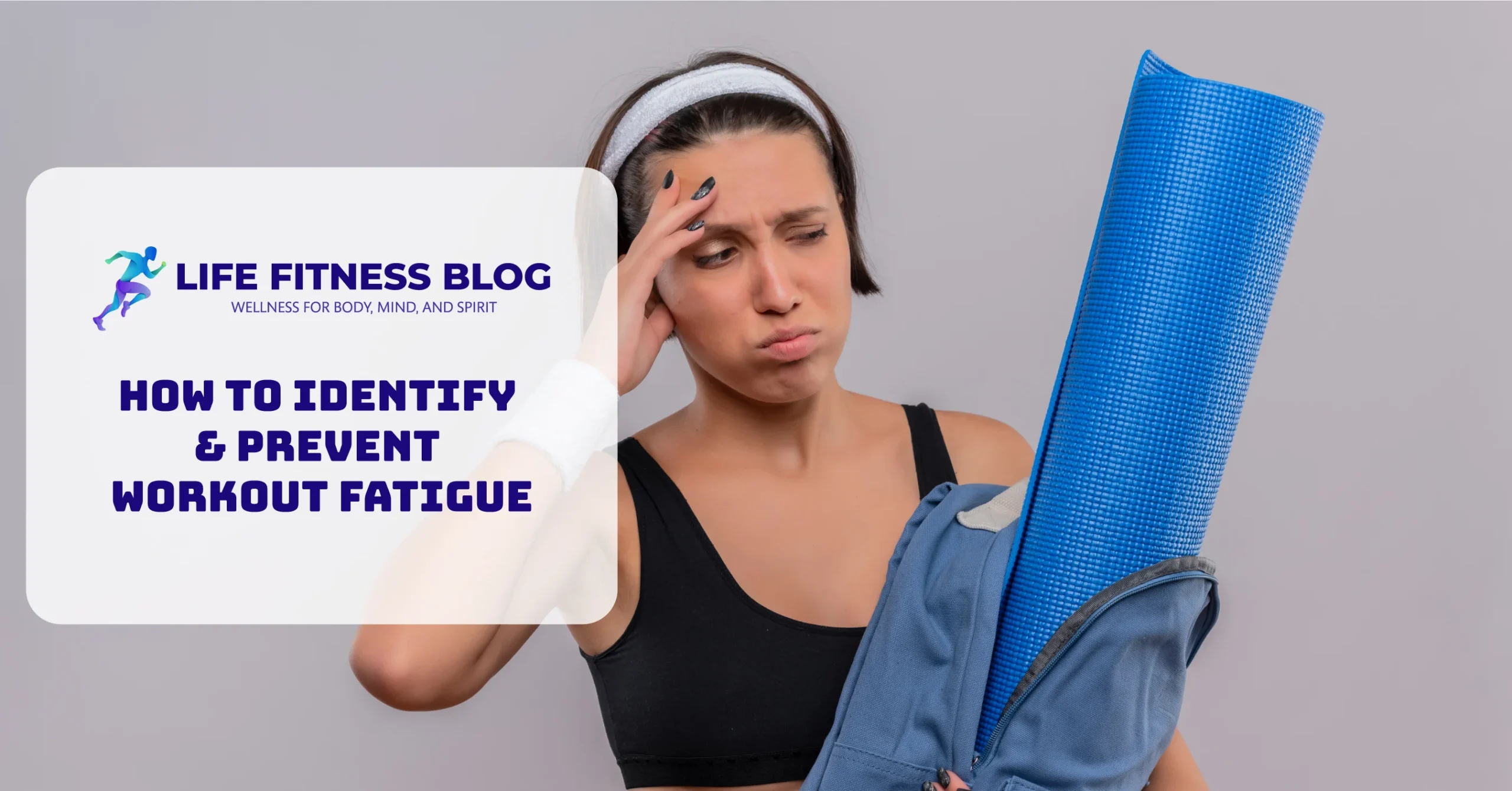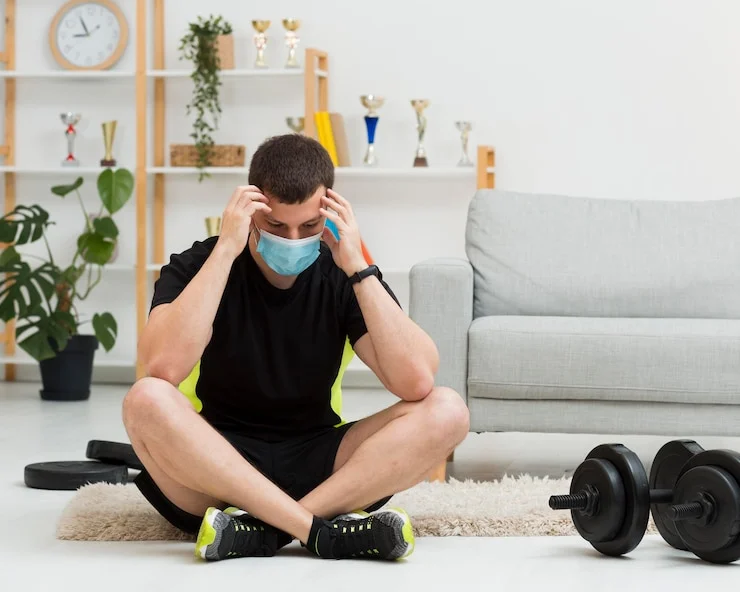
How To Identify And Prevent Workout Fatigue
Ever had one of those days when just the thought of working out feels exhausting? You’re not alone. That sluggishness, when persistent, could be workout fatigue. It’s more than regular post-exercise tiredness and can sneak up on athletes and casual gym-goers alike. The good news? By learning to spot it early and taking the right steps, you can feel energized, stay consistent, and most importantly, enjoy your workouts again.
This guide will break down what workout fatigue is, how it affects your body and mind, and practical ways to prevent it. After all, staying active should make you feel good, not drained.
Table of Contents
What is Workout Fatigue?
Workout fatigue is that extended feeling of exhaustion—physically, mentally, or both—that lasts far beyond your cool-down routine. Everyone feels tired after an intense session, but if you’re noticing decreased motivation or physical performance over days or weeks, that’s a red flag.
The Two Types of Fatigue
- Physical Fatigue
This type of fatigue shows up as muscle soreness, reduced energy, and even challenges with exercises that used to feel easy. - Mental Fatigue
This often flies under the radar. Maybe you feel distracted during a workout or can’t bring yourself to start. Your brain might need as much recovery as your muscles.
Learning to distinguish between these types is key because both require different recovery approaches.
Signs and Symptoms of Workout Fatigue
Physical Indicators
- Muscle tightness that lingers past your usual recovery period.
- Difficulty lifting weights or maintaining the same intensity you’re used to.
- Constant tiredness, even with lighter exercises or activity.
Behavioral & Emotional Indicators
- Procrastinating workouts or skipping them altogether.
- Feeling irritable or overly emotional after physical activity.
- Struggling to enjoy workouts you once loved.
When to Seek Help
If you’re consistently fatigued despite proper rest, nutrition, and hydration, it may hint at something more serious like overtraining syndrome or other underlying health issues. Don’t hesitate to reach out to a professional if symptoms persist.

Common Causes of Workout Fatigue
Overtraining and Lack of Rest
Think of your muscles like batteries. Overtraining without taking enough rest drains them, leaving them too exhausted to charge up for the next session. Scheduling rest days or low-intensity workouts is critical for maintaining energy.
Poor Nutrition
Your body needs fuel to function, just like a car needs gas. If your diet lacks enough carbs, protein, or healthy fats, your energy levels will plummet, and recovery will slow.
Dehydration
Did you know even mild dehydration can dramatically affect performance? Sweating more than you’re replacing during a workout leaves your body unbalanced, leading to tired muscles and sluggishness.
Sleep Deficiency
Good sleep isn’t just about staying awake; it’s about repairing muscle tissue and refreshing your brain. Skipping on quality sleep quickly takes its toll on performance and mood.
| Cause | Effect | How to Fix It |
|---|---|---|
| Overtraining | Prolonged fatigue, reduced performance | Schedule rest days |
| Poor Nutrition | Weakness, slower recovery | Eat balanced pre-/post-workout meals |
| Dehydration | Muscle cramps, loss of focus | Drink water before, during, and after exercise |
| Sleep Deficiency | Emotional stress, poor endurance | Aim for 7–9 hours of sleep nightly |
How to Prevent Workout Fatigue
Optimize Your Training Plan
It’s easy to get caught up in setting ambitious workout goals. But if your schedule doesn’t allow room for breaks, you risk burning out. Incorporate a mix of high-intensity, low-intensity, and rest days to give your body time to heal.
- Rest Days: At least 1–2 per week.
- Variety: Alternate between strength, cardio, and flexibility exercises.
Improve Nutrition and Hydration
Proper fuel can make or break a workout. Focus on eating whole foods that boost energy without weighing you down. Also, staying hydrated isn’t just about guzzling water during the gym; it’s about maintaining hydration all day.
| Food Category | Example | Benefit |
|---|---|---|
| Whole Grains | Oats, quinoa | Provides steady energy |
| Lean Proteins | Fish, chicken, tofu | Supports muscle repair |
| Healthy Fats | Nuts, avocado | Helps maintain endurance |
| Fluids | Water, coconut water | Replenishes lost electrolytes |
Importance of Sleep
Think of sleep as your body’s “reset button.” Quality sleep allows your body to repair, recover, and regenerate. Poor sleep can slow progress—and no one wants that!
- Establish a regular bedtime routine.
- Avoid scrolling on your phone for at least 30 minutes before sleeping.
- Consider relaxing habits like reading or gentle stretches before bed.
Listen to Your Body
Pushing yourself hard can be motivating but ignoring your body’s cues can lead to damage. Pay attention to warning signs like persistent soreness, lack of motivation, and even changes in mood. Aim for challenging but sustainable workouts.
Warm-Up and Cool-Down Strategies
Skipping warm-ups or cooldowns might save a few minutes, but it can cost you in recovery time later.
- A proper warm-up increases blood flow and preps your muscles. Think light jogging or dynamic stretches.
- A solid cool-down prevents lactic acid buildup, helping your muscles recover faster. Gentle yoga poses or static stretches work wonders.

Recovery Strategies for Workout Fatigue
Active Recovery
Complete rest isn’t always better. Low-impact activities like walking, swimming, or yoga encourage blood flow and help muscles flush out toxins without adding strain.
Mental Recovery
It’s normal to feel mentally exhausted sometimes. Finding balance is essential. Mindfulness, journaling, or simply taking a day off from all intense activities can help reset your focus.
Post-Exercise Recovery Hacks
Try using foam rollers to release muscle knots, or treat yourself to a massage! Ice baths and contrast baths are great for reducing swelling and soreness. Most importantly, allow yourself some downtime without guilt.
Workout fatigue isn’t a reason to quit—it’s a reminder to care for your body before it asks for help louder. Getting proactive about rest, nutrition, and hydration is the key to staying consistent and feeling good while working toward your fitness goals.

Conclusion
Workout fatigue isn’t something to fear—it’s something to understand. When you pay attention to your body’s signals, eat right, stay hydrated, and get enough rest, you give yourself a chance to thrive on your fitness journey. Nobody’s fitness path looks the same, and that’s the beauty of it. Some days might be harder than others, but remember this isn’t a race; it’s a lifestyle.
Don’t be afraid to take a breather, adapt your routine, or consult a professional if you feel something’s off. Ultimately, a rested and energized you are the best version of yourself for hitting those fitness goals. Keep moving, keep smiling, and don’t forget to enjoy the process!
Also Read: How Sleep Impacts Your Fitness Performance
FAQs
Why do I feel so tired after exercising?
Feeling tired after exercising is normal, especially after intense workouts. However, persistent exhaustion can signal dehydration, poor nutrition, or even overtraining. Make sure you’re eating enough, staying hydrated, and giving your body proper rest.
Should I push through workout fatigue?
It depends. Mild fatigue can sometimes be overcome with a well-balanced meal, extra hydration, or a pep talk to yourself. But if your body feels genuinely run down or you experience unusual muscle soreness or mental fog, it’s better to listen and take a rest day.
Can workout fatigue lead to injury?
Yes, it can. Fatigue lowers focus and increases the chances of poor form or overexertion, both of which can cause injuries. It’s always better to rest and recover than risk a setback.
How many rest days should I plan in a week?
Most people benefit from 1–2 rest days each week, depending on the intensity of their workouts. Active recovery activities like yoga or walking can be done on those days to keep blood flowing.
Is workout fatigue only about physical stress?
Not at all. Mental fatigue is just as real. Factors like increased work stress, inconsistent sleep, or feeling overwhelmed about fitness goals can make you feel tired too. Balance is the secret to long-term success.
